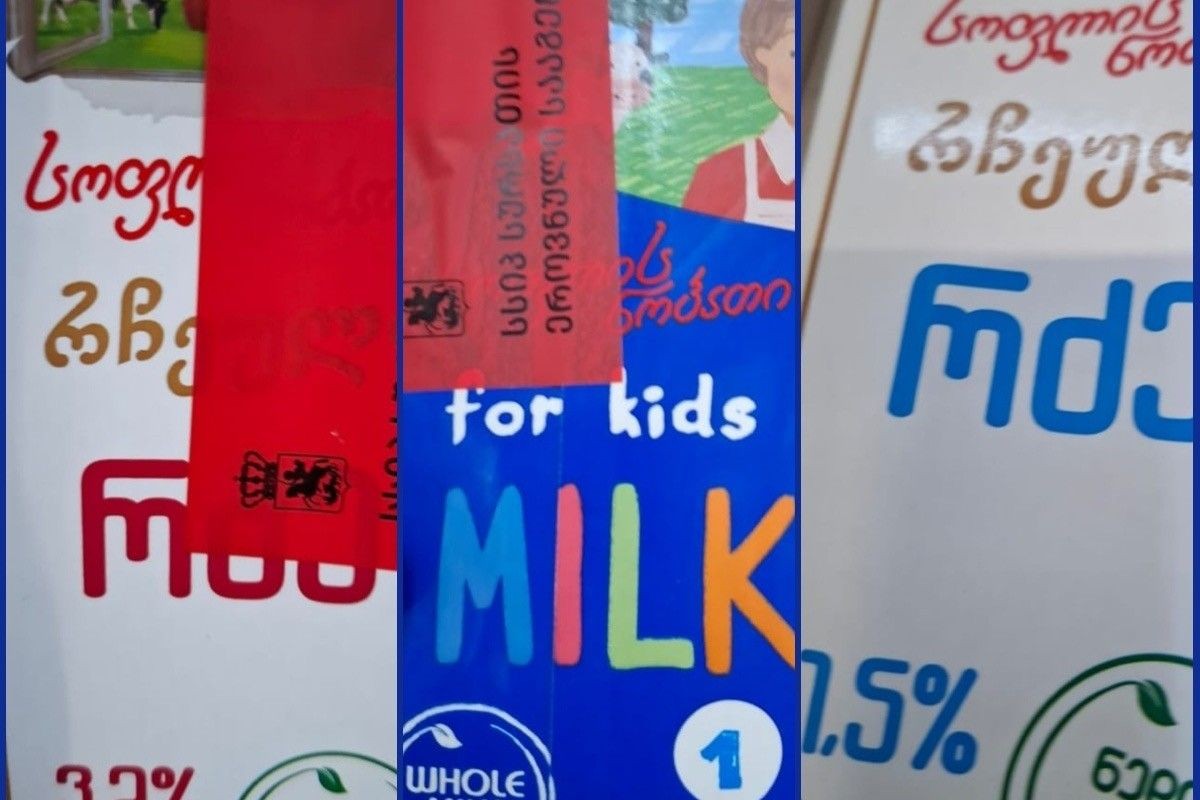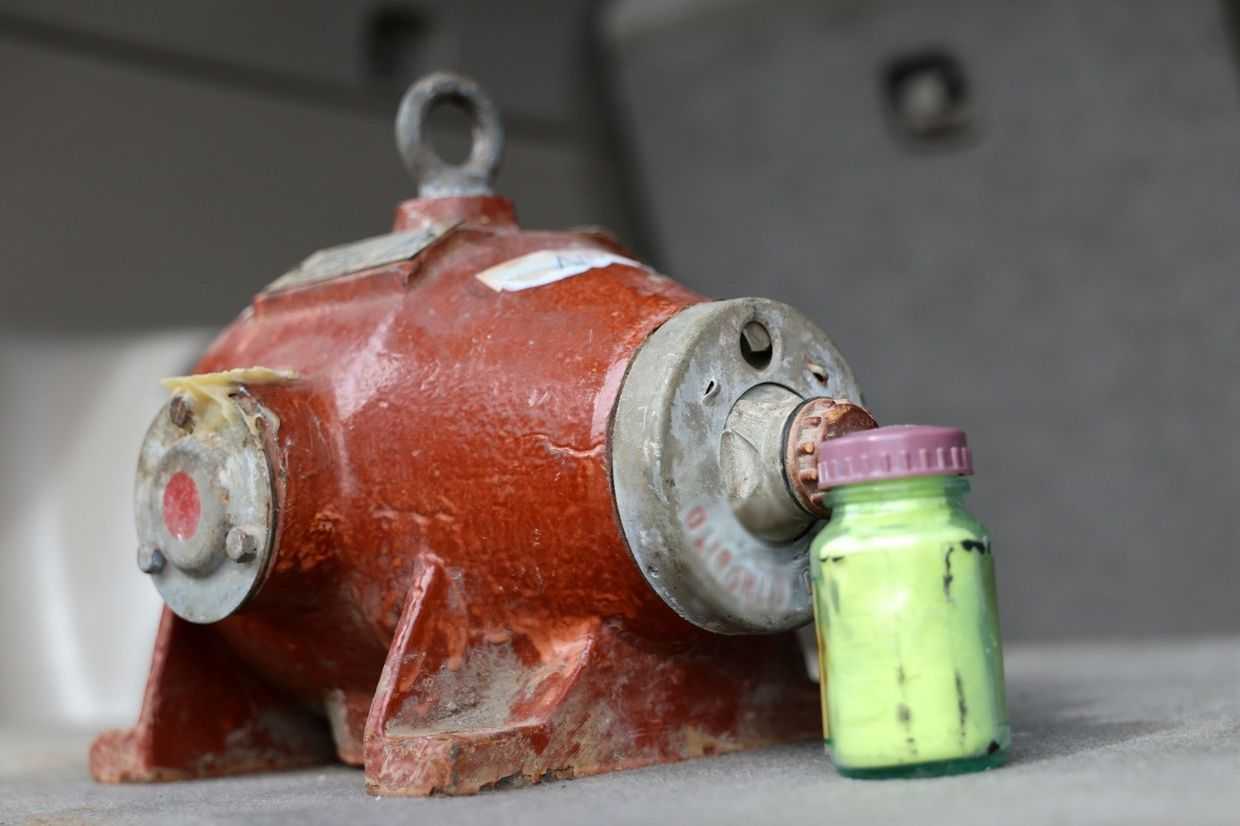
The scandal surrounding milk quality in Georgia has intensified after a dangerous toxin was found in a popular brand, just days after Georgia’s largest dairy supplier was accused of feeding chicken faeces to their dairy cows. The ongoing debate has led some to draw connections to a broader context, highlighting the dysfunction of institutions and the lack of independent judiciary in the country.
On Thursday, Georgia’s National Food Agency announced that it had inspected a Tbilisi-based milk supplier, Wimm-Bill-Dann Georgia, publicly known as Soplis Nobati, whose products are widely sold across the country.
The agency stated that ‘no critical violations were found at the facility’, but a labeling rule violation was identified, resulting in a fine. The company was instructed to recall mislabeled products from the market and to collect five random samples of milk produced by the Azerbaijani company MILLA DAIRY LTD at the request of Wimm-Bill-Dann Georgia.
After the five samples were examined by an agency laboratory, it was found they all had excessive levels of aflatoxin M1, including a milk product intended for kids.
According to the agency, aflatoxins are produced by mold fungi. When animals consume feed contaminated with aflatoxin B1, it enters their system and transforms into aflatoxin M1 in milk, posing a risk to human health.
The company was ordered to remove the affected batches from the market, while the agency urged consumers not to consume contaminated milk.
On Thursday evening, Soplis Nobati responded to the agency’s statement, claiming that the mentioned product was only a ‘small batch’ of milk that ‘poses no risk to consumers’. However, the company acknowledged that, according to the agency’s assessment, it ‘may not meet certain local standards’.
The company stated that, for ‘maximum safety’, the affected batch would be withdrawn from sale within hours. It also announced the suspension of cooperation with its Azerbaijani partner, MILLA DAIRY LTD, ‘until all technical details are clarified’.
The company published this response on Facebook, restricting the comment section while receiving a number of negative reactions.
In response to the public outcry, Paata Imnadze, the head of the National Centre for Disease Control and Public Health, stated that the levels of toxins found in Soplis Nobati samples would not cause ‘acute poisoning’.
‘To cause liver damage or other more serious conditions, their consumption would need to be prolonged over time and in large doses. At the levels found, which are lower than the permissible limits in many developed countries, there is no danger’, he said.
Addressing the issue in social media, Georgian oncologist and geneticist Aleksandre Tavartkiladze also noted that ‘this dose of aflatoxin will not cause acute poisoning’, however he emphasised that both aflatoxin B1 and aflatoxin M1 have cumulative effects on the body.
‘With chronic consumption, even small doses gradually accumulate in the body, increasing the risk of damage’, he added.
According to Tavartkiladze, aflatoxin B1 is considered one of the most potent carcinogens and increases the risk of diseases like liver cancer.
As for aflatoxin M1, he noted that while it is relatively less carcinogenic, it can still cause health issues, particularly in children and individuals with prolonged exposure.
‘We shouldn't succumb to excessive stress, but I believe this issue truly deserves special attention’, Tavartkiladze concluded.
On Friday afternoon, in an attempt to ease public concern, the National Food Agency issued an additional comment regarding Soplis Nobati products, noting that ‘the noncompliance was found only in a small batch, and immediate action was taken’.
The agency stated that such facilities are inspected at least four times a year and that aflatoxin was not detected in Wimm-Bill-Dann Georgia (Soplis Nobati) milk either last year or the year before.
Continuation of wider scandal
The Food Agency’s statement came three days after an investigation by RFE/RL revealed that Georgia’s largest dairy farm Kvareli Baga had fed chicken faeces to its dairy cows.
Kvareli Baga has been supplying milk for years to major companies in the Georgian market — including Soplis Nobati, Sante, and the upscale grocery chain Agrohub — as well as its subsidiary dairy production facility, Milk Laboratory.
This issue gained attention alongside a legal dispute between Kvareli Baga and Chirina, the largest poultry meat producer in the country.
According to the investigation, Lasha Papashvili, the owner of the farm, reached an agreement in summer 2018 with Chirina, purchasing from it 2,700 tonnes of raw, unprocessed chicken manure over the course of a year.
However, a year after the deal, the farm took the company to court, claiming that the chicken manure it had purchased and fed to the cows contained antibiotics (tetracycline). As a result, according to Kvareli Baga’s claims, the cows died, and tonnes of milk were spoiled.
Thus, it was revealed that the farm was mixing chicken manure into the cows’ feed. According to court documents, each cow consumed approximately 6–7 kilogrammes of chicken manure per day.
Chirina rejected the farm’s claims, arguing that it had sold the chicken manure as fertiliser, not as cattle feed. It also denied using tetracycline in its poultry farm.
As for Kvareli Baga, it defended the use of processed chicken waste in the feed, but stated that this practice had not occurred since 2018–2019, following the start of the dispute with Chirina and the termination of their partnership. They further asserted that the ‘contaminated milk’ was never released into production and was destroyed.
The legal dispute between the parties was only resolved in 2024, with the Tbilisi City Court ruling in favor of Kvareli Baga and imposing a nearly ₾5 million ($ 1.8 million) compensation on Chirina.
Angry reactions
The milk quality scandal sparked widespread public debate, with thousands of people reacting angrily on social media.
Some in particular highlighted the political aspect of the issue — especially given that Papashvili is an open supporter of the ruling party, while the owner of Chirina, Revaz Vashakidze, is a critic of government policies.
According to a source of RFE/RL, the Tbilisi judge who ruled in favor of Kvareli Baga is linked to a group of government-affiliated judges, whom critics often refer to as the ‘judicial clan’. Following the case’s conclusion, Vashakidze claimed that the case was ‘prearranged with the judge’ and that ‘this is extortion through the courts’ — something Papashvili denied.
Georgia’s fifth president, Salome Zourabichvili, was among those who responded to the issue, stating that the ‘oligarchic regime is designed to enrich small and large oligarchs at the expense of people’s health’.
She emphasised that Georgia should be part of Europe precisely to have both a functional national food agency and a judiciary, which, in Zourabichvili’s words, ‘does not exist’ today.
The director of the opposition TV channel Caucasia, Nino Jangirashvili, also commented on the scandal, adding that in a normal country, the owner of Kvareli Baga, Papashvili, would be held accountable, but in ‘Georgia Dream’s country’, he won the court case.
‘This is our reality, and I think nothing better reflects what kind of country we will live in forever if we don’t urgently dismantle the Georgian Dream’, Jangirashvili wrote on Facebook.
Following the RFE/RL investigation, the companies that purchased milk from Kvareli Baga issued statements, claiming that their standards were high, and that they strictly monitored the quality of the milk.
However, the texts did not specify whether the companies have continued to buy milk from Kvareli Baga, nor did they clarify whether they were aware that Kvareli Baga was using manure to feed their cows.









